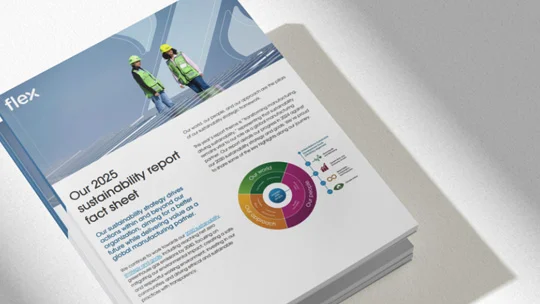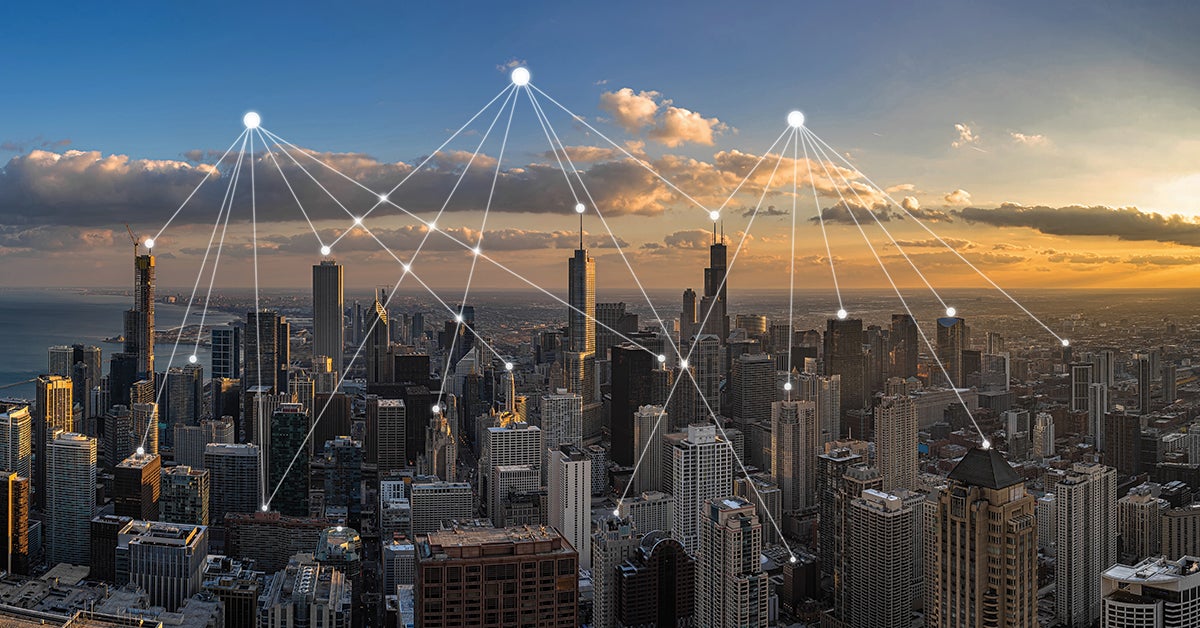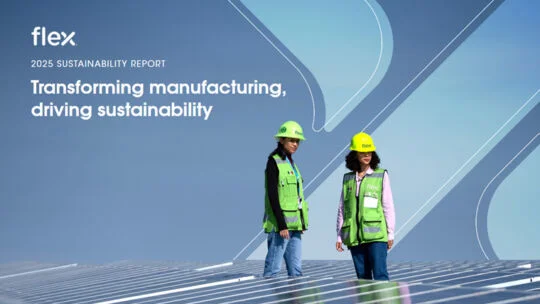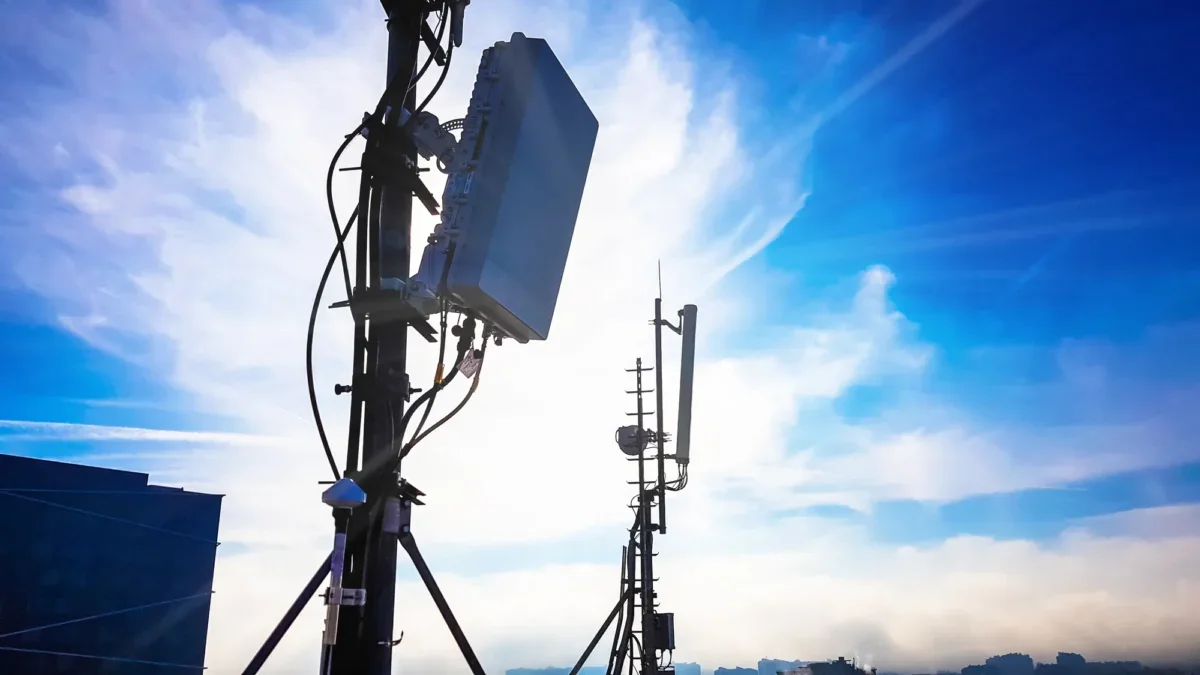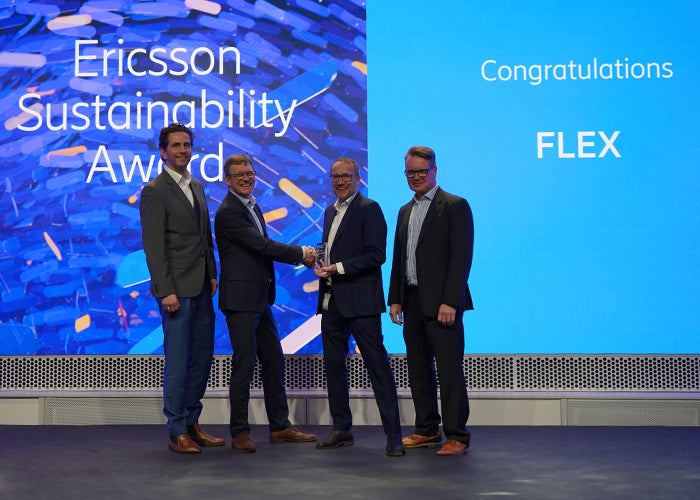Aligned global sustainability commitments and strategies as value chain partners
It is vital that value chain partners align on a shared vision of sustainability in order to drive meaningful progress. Both Ericsson and Flex have a long-standing dedication to environmental efforts, with a shared commitment to achieving net zero greenhouse gas emissions by 2040. As technology companies, science is critical. Both organizations ensure their emission reduction strategy is in-line with climate science by joining the Science-Based Targets Initiative. For the majority of organizations, the largest portion of emissions falls under Scope 3, or the indirect emissions generated through their value chain, making partnerships critical.
A key pillar of Flex and Ericsson’s emissions reduction strategy is the alignment of value chain partners in their pursuit of net zero goals, including reducing Scope 3 emissions.
Ericsson is committed to advancing a more sustainable value chain. Flex is helping support this through a commitment to a 50 percent reduction of absolute operational greenhouse gas emissions by 2030 from a 2019 base year. Flex also collaborates with value chain partners to reach emission reduction goals.
Sustainable operations reduce emissions for Ericsson, Flex, and the extended value chain
Flex’s approach to reducing operational emissions leverages over a decade of sustainability experience and a footprint to activate a strategy that addresses global, country, and site-specific needs. The three main facets of Flex’s operational energy management and emissions reduction strategy are seeking out opportunities to reduce the need for energy consumption, leveraging system efficiency as a mitigation tactic, and increasing use of renewable energy resources.
At the beginning of 2022, Flex’s factory in Tczew, Poland ran on 100 percent renewable energy, helping to ensure that Ericsson products manufactured in this facility benefit from more environmentally-friendly operations.
Out of the 1.1 million products manufactured by Flex for Ericsson in Poland, 1,401 baseband units were delivered by Ericsson to the customer, BT Group. Through Flex’s transition to renewable energy at its Tczew, Poland facility, both Flex and Ericsson projected an 11,000-ton reduction in Flex’s Scope 2 carbon emissions attributed to Ericsson for the year 2022. This reduction corresponds to a decrease of 14 tons in embodied carbon emissions for the 1,401 baseband units sent to BT Group.
Progressing on a path to sustainability
Ericsson and Flex are focused on leveraging value chain partnerships to drive sustainability forward, collaborating to progress sustainability efforts and capitalize on operational enhancements. Both companies are committed to emission reduction targets while fostering an environment that promotes collective action.
Ericsson’s latest sustainability report showcases an increasing number of suppliers who have made qualifying emission reduction commitments, including providing a credible decarbonization plan. Flex, as a supplier, is similarly aligned to emission reduction targets, and committed to making progress across the value chain.
Flex emission-reduction progress in 2023
33%
decrease in operational greenhouse gas emissions from a 2019 baseline1
51%
of preferred suppliers2 had emission reduction targets
80%
of specified customers3 had science-based targets, respectively
These milestones represent steps in both companies’ journeys toward achieving net zero greenhouse gas emissions by 2040. By operating efficiently and enhancing resilience and minimizing risks, Ericsson and Flex are paving the way for accelerated digitalization across industry and society alongside sustainability and resilience efforts, contributing to a greener future along the way.
1 The target boundary includes biogenic emissions and removals from bioenergy feedstocks.
2 Flex’s goal is to have 50% of preferred suppliers set emissions reduction targets by 2025 and 100% of preferred suppliers do so by 2030.
3 Progress based on our commitment that 70% of our customers by emissions covering purchased goods and services, capital goods, and use of sold products will have science-based targets by 2025, which was baselined in calendar year 2019.
